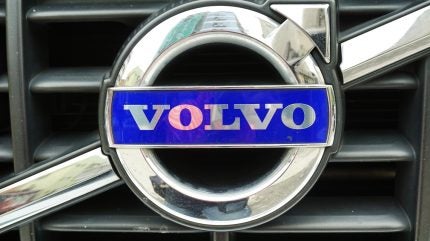
Volvo Cars, a subsidiary of Zhejiang Geely, has reported record-high retail sales, revenues, and core operating profit for the full year 2024.
However, the company has cautioned that 2025 is expected to be a challenging year due to tough market conditions.

Discover B2B Marketing That Performs
Combine business intelligence and editorial excellence to reach engaged professionals across 36 leading media platforms.
The automaker’s full-year revenue surpassed Skr400bn ($36.50bn) for the first time, driven by record sales of 763,389 vehicles.
Its core operating profit, excluding joint ventures and associates, reached Skr27bn, reflecting a 6% increase compared to 2023. The core operating margin stood at 6.8%, up from 6.4% in the previous year.
In the fourth quarter, Volvo Cars reported a Skr1.7bn write-down related to its NOVO joint venture before taking full financial control of the entity.
Gross margins for the quarter were 17.1%, impacted by a one-time effect from the sale of on-balance sheet cars, which increased revenue and cost of sales but lowered the Q4 gross margin.
Inventory reductions in the quarter also weighed on margins, the company said.
The company cited factors such as sales channel mix, pricing pressure, and product line-up affecting margins, though these were partially offset by a “more efficient” cost structure for new car sales.
Free cash flow for the year turned positive at Skr1.1bn, attributed to what the company described as “diligent and disciplined cash management.”
Volvo Cars’ sales of fully electric vehicles reached 175,194 units in 2024, marking a 54% year-on-year increase and accounting for 23% of its total global sales.
Electrified models, including plug-in hybrids, represented 46% of total sales, the auto giant said in its earnings statement.
Volvo Cars chief executive Jim Rowan said: “2024 was a year of two halves. For the first six months, we recorded strong double-digit volume growth. But like the rest of the industry, we experienced a more challenging second half.
“Demand slowed down and this had an impact on both our sales pace and underlying profitability. Nevertheless, we can look back at 2024 with a sense of achievement in several areas and we are positioned well to achieve our long-term ambitions.”
Looking ahead, Volvo Cars expects a weak market in 2025 due to “competitive and geopolitical challenges.”
However, it aims to navigate these conditions through a “focused strategy, balanced footprint, technological development and diversified line-up.”
The company plans to introduce five “new or refreshed” models in 2025, which it expects will help mitigate some market pressures.
Despite maintaining its guidance for outpacing market growth between 2023 and 2026 on a compound annual growth rate (CAGR) basis, delivering a core EBIT margin of 7-8%, and generating positive free cash flow in 2026, Volvo Cars anticipates 2025 will be a transition year.
The company also expects increased discounting across the industry amid intensified competition, making it difficult to match its 2024 sales and profitability levels.
Additionally, higher amortisation costs for new models, such as the EX90 and ES90, are expected to impact profitability, the company noted.
Volvo Cars also added that it now expects to achieve a positive free cash flow for the full year 2025, an improvement from its earlier neutral free cash flow guidance.






